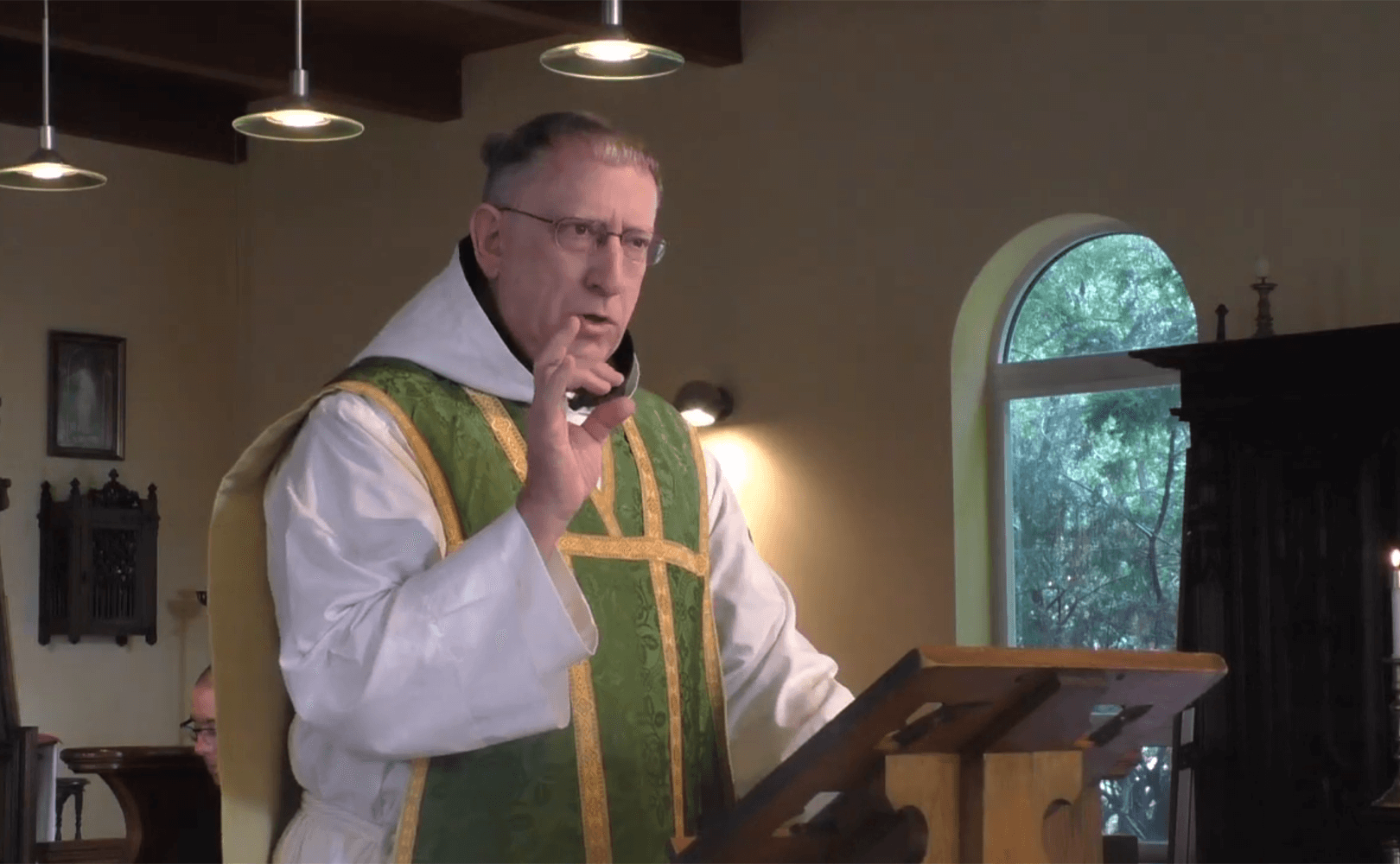Yesterday, I caught the homily for the XI Sunday After Pentecost from my friend Dom Daniel Augustin Oppenheimer, prior of the Canons Regular of the New Jerusalem. (They’re livestreaming all their Masses and some Vespers these days, in case you’re interested.) Entitled “pray without ceasing,” the entire thing is worthwhile (I’ll link the video below) but the section that stood out most strongly for me begins at 6:59 in the timeline, and I wanted to share it with all of you.
At that moment, Father has just mentioned the legalization of Christianity in the Roman Empire under Constantine’s Edict of Milan, and how the Church then transitioned from a persecuted Church empowered by martyrdoms to a religion that could instead carry with it the advantages of social advancement.
He continues:
In the face of the inevitable tendency under such conditions for the general mass of Christians to sink then into a spiritual mediocrity, the ever vibrant urging of a true conformity to Christ crucified then led tens of thousands of people into the desert, where they pursued the living martyrdom of an ascetic life of reclusion, prayer, and adoration. That, beloved, is the foundation of monastic or religious life in the Church.
These Christian athletes sought to know God. They did not seek to know about Him so much as to know him. Not know about Him – because you [can] know all about aspects of the Trinity while maintaining a life of gross sin – they did not seek so much to know about Him as they sought to know Him. A continuous refrain on their lips, still fresh in the vast corpus of their spiritual readings which is the backbone of the spirituality of true monastic life, spiritual writings, these being the desert ascetics among whom are counted the great fathers of the Church in Christian antiquity. Constantly on their lips is the admonition to pray without ceasing. This was and remains ever necessary, because by constancy in prayer we come to know God personally, deeply, with that committed affection which arises from the deepest soil of our souls.
Now, Protestants are very good at personal prayer with Jesus in many instances, whereas Catholics are very good at saying, when I ask them in confession, “Do you pray?”, “Yes Father, I say the rosary, I say the stations of the cross, I do this novena and that novena,” and I then I say: “Do you talk to Jesus?” “No, not very much.”
You need to. We need to excel the enthusiasm of Protestants in our personal intimate conversation with Jesus as our closest most intimate confidant. This grants unto us, rendered mute as we are by sin, to rise from a merely intellectual religion, to a life whose fabric is determined by the fires of God. Christianity is not merely something of the intellect. It is in fact something of the heart. It arises from a personal relationship with Christ in God, and is nourished by a heart ablaze in His Love.
This has always been a great challenge for me. I know that my faith is more of an affair of the intellect than one of the heart, and I pray daily for the grace to change it. But it struck me that for so many of us concerned about alterations to Church teaching and heterodoxy running rampant through the Church, this becomes a temptation. We focus so much on the rules and the teachings, that we can forget to love God. We get so caught up making sure we’re saying all of our formal prayers, we can forget to engage in spontaneous ones. It becomes, in a sense, a religion of checking boxes, and by extension, we find ourselves living in fear of not doing what God wants rather than out of love of He Who is deserving of all love.
The full homily is below.


